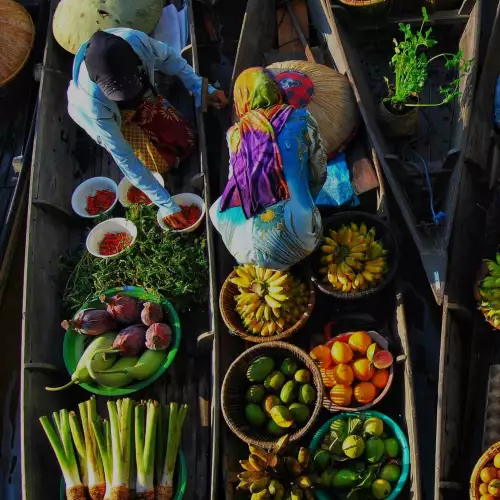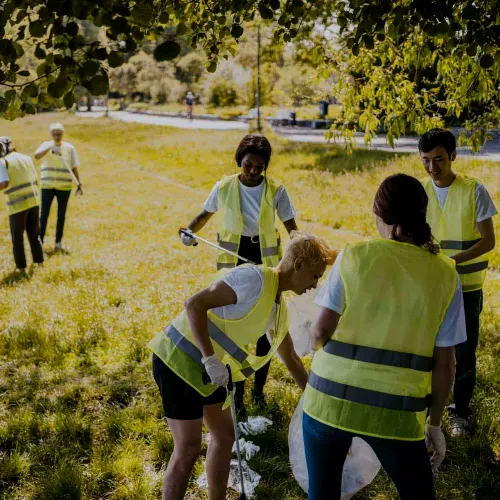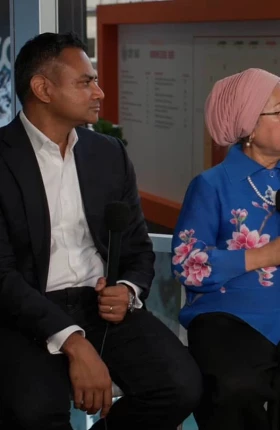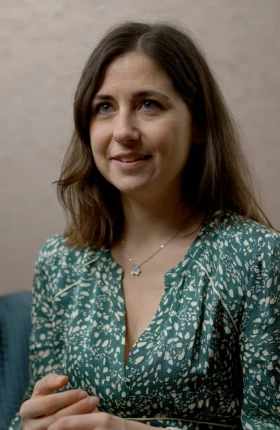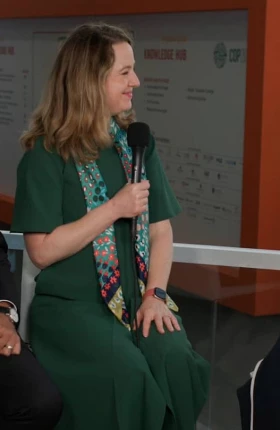真にサステナブルな事業へと変革して優位性を構築するには、ESG視点を事業のあらゆる要素に組み込むとともに、ビジネスとしての価値を獲得することが求められます。
Featured Insights
おすすめコンテンツ

Article
2021年12月17日

Article
2022年3月31日
経済的リターンとともに社会や環境に測定可能な価値を生み出すことをめざす「インパクト投資」。社会の多様性や公平性、包摂性の向上に向けたインパクト投資をさらに拡大するために、機関投資家はこれまでのやり方をどう変えるべきでしょうか。

Article
2021年11月22日
各国のダイナミクスの中で日本や日本企業がカーボンニュートラルにどう対峙するべきか、ヒントを提示するとともに、企業が描くカーボンニュートラルへのロードマップを3つのステップ、10の取り組みに分け、事例をまじえて解説します。
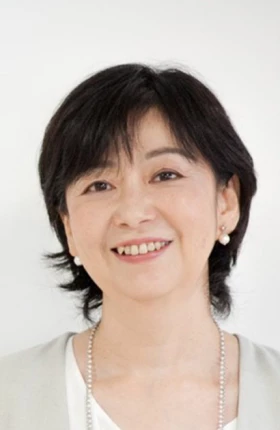
Article
2021年11月8日
味の素グループは、創業以来一貫して、事業を通じて社会や地域の課題の解決に取り組み、社会的価値を創造することで経済的価値を創出してきました。このPodcastでは、サステナビリティ領域において日本で先進的な取り組みをしている味の素株式会社の森島 千佳執行役に、BCGのマネージング・ディレクター&パートナー 折茂 美保がサステナビリティの経営への織り込み方や味の素が掲げるビジョンなどについて伺いました。
Climate Adaptation and Resilience

Article
2024年9月9日
BCG has quantified the staggering cost of inaction on climate. To avoid worst-case scenarios, the private sector and other stakeholders must ramp up their collaboration.

Article
2024年7月23日
Action to enhance adaptation and resilience is urgently needed. A new approach for tracking the impact of a country’s A&R investments could unlock investment.

Leaders from both the public and private sectors must take bold action to protect communities, organizations, and natural systems from the impacts of climate change. A new generation of data-driven and digital technologies will play a central role in this effort.

The imperative for adaptation and resilience investment has always been clear. Now, finally, so is the business case.
Sustainable Investing and ESG

Article
2023年11月30日
Financial institutions have a major business opportunity in social impact. A global BCG survey reveals what’s standing in their way—and how they can up their game.

Article
2022年12月14日
Financial institutions that lead on social tend to outperform. But there is no “net zero” for social—and banks are struggling to seize the opportunity.

Article
2024年9月24日
By 2030, BCG estimates that companies will spend up to $3 trillion on adaptation and resilience. Banks are uniquely positioned to offer advice and capital.

BCG and UN Global Compact Network Singapore partnered to bring insights from the 2024 CEO Roundtable to drive progress in key areas including climate action, living wages, and sustainable finance.
Global Health

Article
2024年11月18日
Extreme weather events such as cyclones and floods will drive increases in the incidence of sickness and death from malaria in Africa, according to a new study.

Article
2024年1月4日
BCG conducted a study of more than 70 organizations—including philanthropies, multilateral development banks, government agencies, nongovernmental organizations, private sector actors, and others—to understand how key stakeholders are approaching the climate-health challenge.
Video
2023年12月4日
Human Health Depends on Planetary Health
Too often is it taken for granted that the environment is a massive determinant of human well-being. Putting health at the center of our climate discussions is critical.
Video
2023年6月12日
How Can Health Care Be Socially Transformative?
BCG’s Johanna Benesty explains that, while businesses in every sector have the potential to be socially transformative, the opportunity in healthcare is particularly great.
The Sustainable Advantage: Insights on Creating Competitive Advantage Through Sustainability
Economic Development

Article
2024年4月25日
BCG collaborated with Mastercard and Nubank to analyze consumer data and insights across the Brazilian market to map the financial inclusion journey and provide a framework for financial inclusion.

Article
2022年11月4日
The continent is rich in youthful, entrepreneurial energy. Well-planned investments now can help Africa transform itself into a global center of technological and ecological innovation.

Article
2022年8月29日
Africa is setting its sights on a future shaped by a young population, rapid urbanization, climate change, growing digital capacity, regional cooperation, and entrepreneurial innovation.
Humanitarian Response
Video
2023年12月4日
Migration in the Spotlight
The climate crisis is already displacing millions, and the problem is poised to get worst. Is enough being done? How can the public and private sectors come together to address this issue?

Recovery efforts in Ukraine hinge on the country's capacity to absorb technical and financial support. BCG and The European Investment Bank recommend key frameworks and principals for maximizing the economic and social impact of these efforts, as well as strategies for prioritizing funding and support.

Report
2022年12月8日
Companies must deploy three strategies—centered on global talent, cross-border innovation, and taking a stand for human rights—to maximize value from migration.
Video
2020年7月14日
The Private Sector's Role in Humanitarian Crises
David Young clarifies the private sector's role in preparing for humanitarian crises for the good of the business, its employees, and the country in which it operates.
BCG on Social Impact
Follow BCG on Social Impact on LinkedIn to explore how organizations are advancing the SDGs and how the growth of your business can have a positive societal impact.
Food Systems and Security

Article
2024年3月20日
Worldwide consumption of refined grains contributes significantly to diet-related disease and malnutrition. Production of these grains creates serious environmental damage. A powerful antidote to these problems is fortified whole grains.

Report
2024年2月7日
Regenerative agriculture is one of the most effective ways to lower Denmark’s CO2e footprint and improve the sustainability of its agriculture sector.
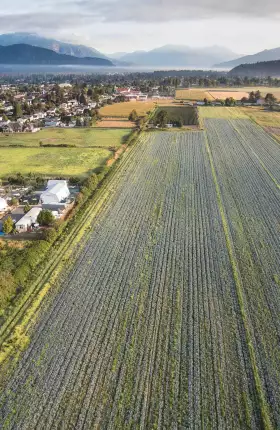
Article
2022年11月7日
The cost of food is rising rapidly, and hunger is on the increase. What will it take to build a better way to feed the world?

Article
2022年5月17日
In the wake of Russia’s invasion of Ukraine, our global food systems are struggling to feed those most at risk.

Article
2024年6月11日
Organizations can focus their attention on just these four areas to diagnose where they may be falling short in their efforts to meet employees’ needs.

Talent can be hard to source and retain, even as segments of the US population lack access to satisfying, supportive jobs. Three initiatives are making a difference.

Article
2024年3月6日
Private equity and venture capital firms whose ownership is predominantly women or people of color may unlock access to differentiated deal flow for their investors.

Article
2023年11月3日
Investors often misperceive—and therefore overlook—an ethnic group that’s a growing economic powerhouse in the US.


